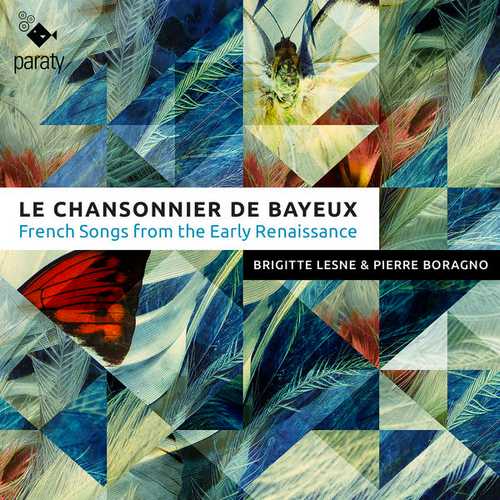
Composer: Alexander Agricola, Guillaume Dufay, Antoine de Févin, Heinrich Isaac, Jean Mouton
Performer: Brigitte Lesne, Pierre Boragno, Benoît Toïgo, Pierre Hamon
Format: FLAC (tracks)
Label: Paraty
Release: 2021
Size: 963 MB
Recovery: +3%
Scan: yes
01. anon.: Ne l’oseray je dire se j’ayme par amours
02. Gascongne: Celle qui m’a demandé argent pour estre m’amye
03. anon.: Héllas! Mon cueur n’est pas à moy
04. anon.: Bevons ma commere, nous ne bevons point
05. anon.: Adieu mes amours, a Dieu vous commant
06. Isaac: Adieu mes amors
07. anon.: J’ay veu la beaulté m’amye
08. Févin: J’ay veu la beauté m’amye
09. anon.: On doibt bien aymer l’oysellet qui chante
10. anon.: On a mal dict de mon amy
11. Févin: On a mal dit de mon ami
12. anon.: La Belle se siet au pié de la tour
13. Dufay: La belle se siet
14. anon.: My my, my my, mon doulx enfant
15. Agricola: Royne des flours
16. anon.: Dessoubz la branche d’un vert boys
17. anon.: Le roy engloys se faisoit appeller le roy de France
18. Mouton: Je le lesray puisqu’il m’y bat
19. Févin: Je le lesray puisqu’il m’y bat
20. anon.: Or sus, par dessus tous les aultres, begny soit le coqu
21. anon.: Or sus, par dessus tous lez autres
22. anon.: Hellas Ollivier Vasselin, n’orrons point de vos nouvellez
23. anon.: Belle tres doulce mere Dieu, tenez ces folz en joye
24. anon.: Le bon espoir que mon cueur a
25. anon.: Le bon espoir que mon cueur a
The Chansonnier of Bayeux, a luxury manuscript for a collection of ditties. Here the pieces belong to all kinds of genres: love songs (sometimes courtly, more often bawdy), drinking songs, satires, women’s songs, others dealing with events and characters from the Hundred Years’ War (Le Roy engloys and Hellas Ollivier Vasselin). Only pious songs are not featured: even the incipit Belle tres doulce, mère Dieu surreptitiously leads to rather lewd verse.
A poetical and musical contrast can be at the very heart of some songs (J’ai veu la beaulté m’amye). Some of the themes have floated through the centuries; thus the dialogue of a father and his rebellious daughter in La belle se siet, already set to music at the time of Guillaume Dufaÿ, will turn into our children’s song Ne pleure pas, Jeannette, sung to an altogether different melody.
The upper classes of the late XVth century would appreciate the many sexual innuendoes and the “popular” situations referring to unhappily married women cuckolding their husbands, drunks, soldiers complaining that they have not been paid, and even a menagerie of noisy animals (a donkey in My my). No doubt the audience hugely enjoyed these stagings of country life, real or fictitious, as they did in the XIIIth century when listening to some motets and pastoral songs of trouvères.



